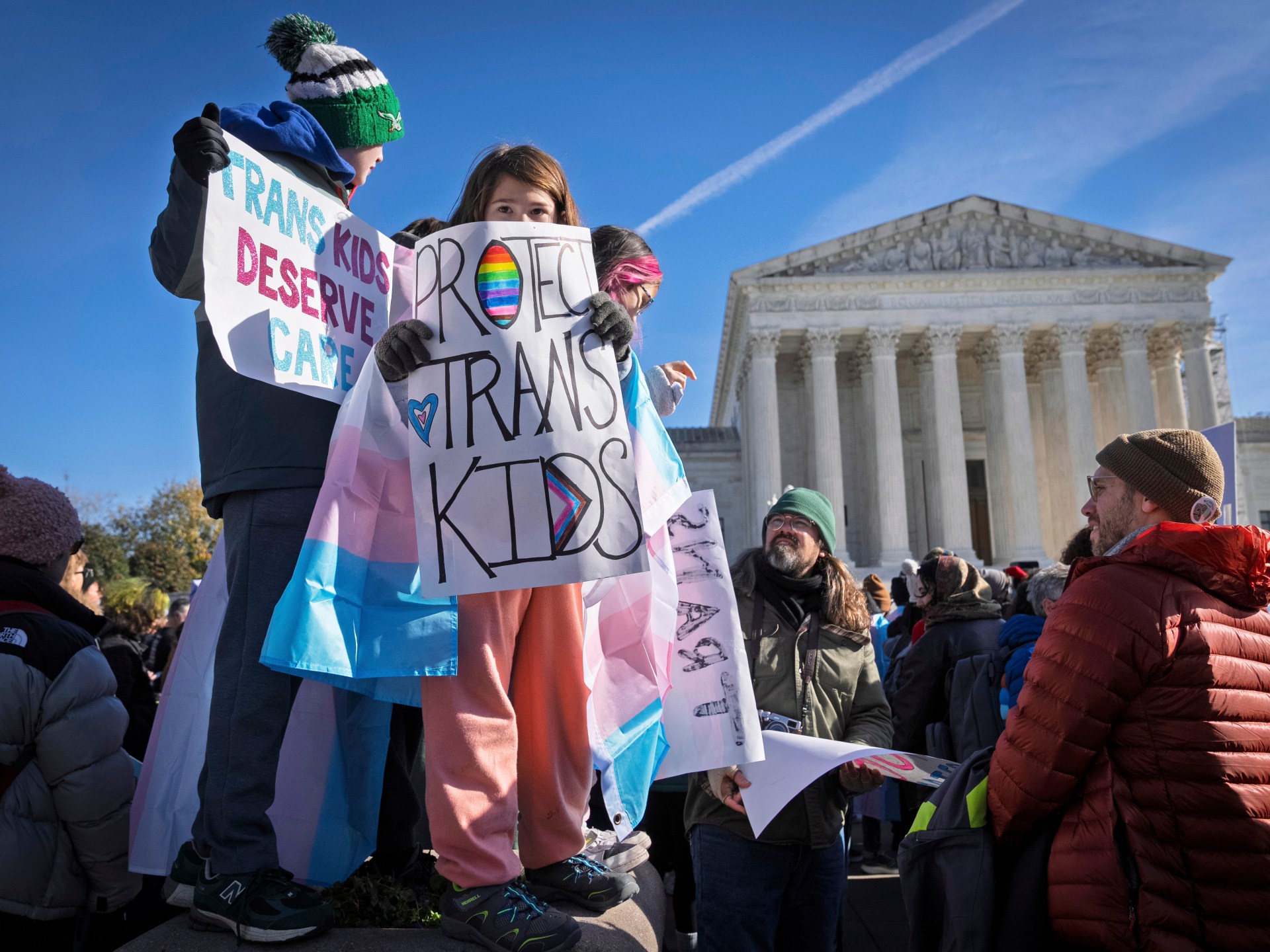A Tennessee law that forbids hormone replacement therapy and puberty blockers for transgender minors is still in effect, according to the US Supreme Court.
The high court’s six conservative judges voted for Tennessee and its three left-leaning judges joined together to argue their case on Wednesday, which splintered ideologically.
The majority’s opinion was written by Chief Justice John Roberts. He explained in it that the plaintiffs, three transgender minors, their parents, and a doctor, had failed to successfully challenge the 14th Amendment of the Constitution, which guarantees equal protection under the law.
The plaintiffs claimed that because of their sex and gender, Tennessee’s SB1 law discriminated against them.
Roberts, however, disagreed. He noted that young men and women are equally subject to the ban.
He claimed that “SB1 does not conceal sex-based classifications.” The law does not forbid sexual activity that would otherwise be permitted. No minors may receive hormones or puberty blockers as part of SB1 to treat gender incongruence, gender identity disorder, or dysphoria.
Roberts also made the point that the Tennessee law still allows the use of puberty blockers to treat early puberty, disease, or injury in children. He wrote that any sex could submit that application.
According to Roberts, “SB1 does not exclude anyone from receiving medical care because of their transgender status, but rather removes one set of diagnoses from the spectrum of treatable conditions: gender dysphoria, gender identity disorder, and gender incongruence,”
Sometimes transgender youth receive hormone inhibitors to prevent the onset of puberty, preventing the development of secondary sexual traits like breasts, deeper voices, and facial hair.
According to LGBTQ advocates, this gender-affirming care is sometimes required to lessen the strain of such changes and lessen the need for additional surgeries in the future. Generally accepted, potenty blockers are safe and have a temporary effect.
Roberts noted that some medical professionals are urging more research into the drug’s long-term effects and citing “open questions” in the field.
According to Roberts, “Health authorities in a number of European countries have expressed serious concerns about the potential harms associated with the use of hormones and puberty blockers in the treatment of transgender minors.”
Recent developments only serve as further evidence that this area needs more flexibility in laws, he said.
Justice Sonia Sotomayor wrote a fierce dissent in opposition to the majority’s position. Given that transgender youth are more likely to commit suicide, self-harm, and bullying, puberty blockers can save lives, she argued.
The majority contorts logic and precedent to say otherwise, bizarrely declaring that it must support Tennessee’s categorical ban on lifesaving medical care as long as “any reasonably conceivable state of facts” might support it, Sotomayor wrote.
The Court “abandones transgender children and their families to political whims by reversing from meaningful judicial review precisely where it matters most.” I disagree with you in sadness.
She emphasized that there is general agreement in the US medical community regarding the use of puberty blockers when gender dysphoria is suspected of being diagnosed with comprehensive and accurate diagnosis.
According to Sotomayor, “transgender adolescents’ access to hormones and puberty blockers (also known as gender-affirming care) is not based on their appearance at all.” “As opposed to that, access to care can be a matter of life or death.”
She questioned why Tennessee lawmakers should be able to regulate medical decisions and why transgender youth could still use puberty blockers to combat issues like unwanted facial hair in adolescence but not gender equality.
No regard for the child’s parents or doctors’ opinions, Tennessee’s ban is in effect regardless of the minor’s medical history.
the extent to which a minor’s mental health conditions or individual child’s need for medical care,” Sotomayor said.
The transgender community in the US is at a precarious time as a result of Wednesday’s decision.
US President Donald Trump has taken steps to restrict transgender people’s rights since taking office for a second term in January. The Republican leader announced that the federal government would only recognize both sexes, male and female, on his first day back in the White House.
He then issued an additional executive order on January 27, effectively establishing a ban on transgender military personnel. Trump said that transgender people were “expressing a false “gender identity” and that their identity “conflicts with a soldier’s commitment to an honorable, truthful, and disciplined lifestyle.”
That ban was also upheld by the Supreme Court. For transgender soldiers to self-identify and voluntarily leave the military, June 6 was the first day after that.
Trump has also stated that his administration will not fund transgender girls and women’s sports programs in schools. In states like Maine, where Democratic Governor Janet Mills has pledged to stand up to Trump, this decision has caused unrest.
The controversy over Tennessee’s ban on puberty blockers comes as a result of a string of similar laws. According to the ACLU, some 25 states have laws enforcing gender-affirming laws for transgender youth.
According to the group, those laws prevent around 100,000 transgender minors from receiving the medical care they might need.
The Supreme Court’s decision on Wednesday was initially challenged by a lower court, but the Sixth Circuit Court of Appeals overturned the ruling while an appeal was pending.
The ACLU defended the Supreme Court’s decision as a setback but pledged to file legal challenges in the future. It made the claim in a statement that the Supreme Court had not overturned the general rule that transgender people should not be discriminated against.
The ACLU’s LGBTQ and HIV Project co-director, Chase Strangio, described today’s ruling as a “devastating loss for transgender people, our families, and everyone who cares about the Constitution.”
Source: Aljazeera

Leave a Reply